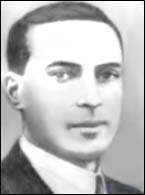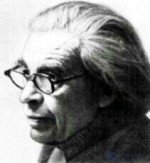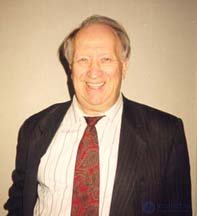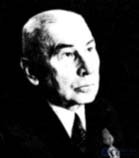Lecture
For a long time, the concepts of developmental education of domestic psychologists and teachers (VV Davydov, LV Zankov, I.Ya. Lerner, and others) were only called in pedagogy textbooks. In the last decade, the situation has changed: theorists and practitioners of national education are increasingly paying attention to the problems of developmental education. Scientific works are dedicated to them. Issues of intellectual, moral and physical development of schoolchildren today are becoming increasingly relevant. Moreover, one of the basic principles of reforming the Russian school is proclaimed the principle of developmental education (Dniprov, E.D., 1994).
The term "developmental education" owes its origin to V.V. Davydov (Ch. 9.1) (Davydov V.V., 1986, abstract). Introduced to denote a limited range of phenomena, he rather quickly entered into mass educational practice. Today, its use is so diverse that special research is needed to clarify its current meaning.
Several prominent Russian scientists, among them B.G. Ananyev (B.G. Ananyev, 1977. P. 24), L.V. Zankov (Zankov L.V., 1990; see annotation) as far back as the 50s. Twentieth century. revealed and described the following fact: great efforts directed at the training of younger schoolchildren did not give the desired effect in their mental development. The scientific and practical problem of the connection between the education and development of younger schoolchildren was posed with all the urgency. Already in the 60s. it was found that changing the content and methods of traditional primary education has a certain positive effect in the development of children (Zankov L.V., 1992; Elkonin D. B., 1989), and others).
 Psychological and pedagogical observations and studies show that, in principle, any training in one degree or another contributes to the development of thinking and personality in children (for example, traditional elementary education develops empirical thinking from younger students). In this paper, we consider not developmental learning "in general", but only such a type that is correlated with the younger school age and is aimed primarily at developing theoretical thinking among younger schoolchildren, at developing their creativity as the basis of personality. It is this type of developmental education that we compare with the traditional type of education, which does not contribute to the development of such qualities in schoolchildren (Chuprikova NI, 1994; see annotation).
Psychological and pedagogical observations and studies show that, in principle, any training in one degree or another contributes to the development of thinking and personality in children (for example, traditional elementary education develops empirical thinking from younger students). In this paper, we consider not developmental learning "in general", but only such a type that is correlated with the younger school age and is aimed primarily at developing theoretical thinking among younger schoolchildren, at developing their creativity as the basis of personality. It is this type of developmental education that we compare with the traditional type of education, which does not contribute to the development of such qualities in schoolchildren (Chuprikova NI, 1994; see annotation).
If mental development can in principle be carried out only in the forms of training and education, then, therefore, these forms always have a developing character. Indeed, in general theoretical terms, the situation is in this way, and any training and education can be called "developing." But all the problems lie in the fact that they specifically develop these types of training and education, and whether the observed development is consistent with the age possibilities of the person. At the same time, it is necessary to keep in mind that some types of training and education can inhibit the mental development of a person (then his regression occurs, which is also included in the philosophical concept of "development") (Chres 9.2) (Fig. 1).
Only as the specific content of these indicators (or at least some of them) is filled in, does the researcher or practice teacher gradually proceed to operating the concept of developmental education in relation to a quite specific age period and to those real means of teaching children of a given age with which to organize their leading activities leading to the development of the necessary level of relevant psychological neoplasms
 The attitude of learning and development represents, according to LS. Vygotsky, "the most central and basic question, without which the problems of educational psychology ... cannot be not only correctly solved, but even posed" (Vygotsky LS, 1991, p. 374). Such was the state of affairs more than 60 years ago, when these words were written, - it continues to this day. Many theoretical and practical aspects of educational psychology and psychological pedagogy can only be understood depending on how seriously and deeply the problems of developmental education will be explored.
The attitude of learning and development represents, according to LS. Vygotsky, "the most central and basic question, without which the problems of educational psychology ... cannot be not only correctly solved, but even posed" (Vygotsky LS, 1991, p. 374). Such was the state of affairs more than 60 years ago, when these words were written, - it continues to this day. Many theoretical and practical aspects of educational psychology and psychological pedagogy can only be understood depending on how seriously and deeply the problems of developmental education will be explored.
(http://www.vygotsky.ru/russian/vygot/vygotsky.htm; see the server dedicated to LS Vygotsky).
By the beginning of the 30s. Twentieth century. more or less clearly revealed the three main theories about the ratio of learning and development. They were described by L.S. Vygotsky.
These theories, with some modifications, exist in modern psychology, having substantiations of an experimental and practical nature. Each of them (especially the first and third) has its supporters, but in the internal sense they divide their followers into two camps. The first is those who do not recognize the impact of learning on development, denies the very possibility of developmental learning (they are supporters of the first theory). The second camp is made up of those who recognize the presence of developmental education regardless of how it can be interpreted (these are supporters of the second and mainly the third theory).
L.S. Vygotsky solved the question of the relationship between learning and development, based on the general law of the genesis of the child’s mental functions, which is found in the zones of proximal development, which are created in the process of his learning, in communication with adults and comrades. He can do something new on his own after he does this in cooperation with others. A new mental function appears as a kind of "individual continuation" of its implementation in collective activities, the organization of which is learning.
"... Only the training is good, which runs ahead of development" (ibid. P. 386). Outside of such training in the mental life of a child, such processes that are associated with its development are impossible. Training is an internally necessary and universal moment of development.
In the works of L.S. Vygotsky we do not find a detailed description of the concrete and objective manifestations of precisely so-understood developmental education. For many years this remained only a hypothesis, although his students sought to concretize it and substantiate it with a certain substantive content. Ideas LS Vygotsky was developed and substantiated in the framework of the psychological theory of activity (Leontyev, AN, 1999; see annotation; Halperin, P.Ya., 1998; see annotation, etc.),
1. Developing education is understood as a new, active-activity way (type) of learning, which replaces the explanatory and illustrative way (type) (see Fig. 2).
Developmental learning differs from the teaching of an explanatory-communicating type in the nature of teaching and learning. The main role of the teacher in the process of developmental education is the organization of the student’s educational activities aimed at the formation of cognitive independence, the development and formation of abilities, ideological and moral convictions, and an active life position.
Developmental education is carried out in the form of engaging the student in various activities, the use of teaching didactic games, discussions, and also teaching methods aimed at enriching the creative imagination, thinking, memory, and speech. Involving a student in educational activities focused on his potential, the teacher should know what methods the student has mastered during the previous training, what is the psychology of this process of mastering, the degree of understanding of students of their own activities. On the basis of the data obtained, the teacher constructs pedagogical influences on the students, placing them in the zone of the nearest development of the child.
2. Developmental training takes into account and uses the patterns of development, adapts to the level and characteristics of the individual (Menchinskaya NA, 1998; see annotation, cover).
3. Pedagogical influences are ahead, stimulate, direct and accelerate the development of hereditary personal data (Biological ..., 1977; see annotation).
The structure of developmental learning is a chain of complex objective tasks that cause the student to master special knowledge and skills, to create new, unparalleled in his experience scheme of solutions, new ways of doing things. Not only the actualization of previously acquired knowledge and already formed methods of action come to the forefront, but also putting forward a hypothesis, forming a principle (idea) and developing an original plan for solving the problem, finding a way to test the solution by using independently noticed new connections and dependencies between this and the desired, known and unknown. In the process of “procuring” the creation of new ways to perform an action, the student receives a concrete result in the form of new facts. Thus, in the very process of learning, the schoolchild rises to a new level of intellectual and personal development.
4. The child is a full-fledged subject of educational activity.
The basis of the teaching in the structure of developmental education is the “goal-means-control” connection, and the central technological link is the student’s independent learning and cognitive activity based on the child’s ability to regulate his actions in accordance with the perceived goal. These actions aimed at changing objects and phenomena caused a certain process in the child’s behavior, motivated by a particular need, which (in the student’s behavior) acts temporarily as an impulse and as a goal. The motive of learning is expressed either directly in practical need, situational interest, or indirectly - subjectively and hidden from the student. For example, for a mathematician or other specialist who is proficient in mathematics, formulas always serve only as an auxiliary tool that allows translating thoughtful content into formal and even purely mechanical work. In order to master the content of the activity, which is generally expressed in the formula being studied, the student must see and reveal the system of meaningful operations concluded in it. Consequently, the assimilation of knowledge and the formation of methods of activity appear in the structure of developmental learning as a process and result of a student’s activity.
5. Developmental education is aimed at the development of the whole integral set of personality traits.
6. Developmental education takes place in the zone of the nearest development of the child.
Developmental education is the orientation of the educational process on the potential capabilities of a person and on their implementation. Advancement in development becomes a condition for deep and lasting assimilation of knowledge. The school student’s learning activity takes place in collaboration with adults, in a joint search when the child does not receive ready-made knowledge, but strains his mind and will. Even with minimal participation in such joint activities, he feels himself a co-author in solving problems that arise. Work based on the zone of the nearest development of a student helps to reveal his potential possibilities more fully and brighter. She brings him faith in their own strength.
Changing the nature of teaching causes a change in the nature and structure of the teaching. The essence of developmental learning is that the student not only learns specific knowledge and skills, but also masters the ways of doing things. The doctrine distinguishes between: learning activities, in the process of which learning occurs, and learning itself as the main content of learning activities. Specific to the teaching is its focus on the mastery of schoolchildren ways of activity even in the process of its design.
The content of the activity, which the student must learn in the process of learning, is associated in his mind with the implementation of the action (system of actions). Thus, learning activities are primary in the process of learning. Knowledge is secondary in nature and, as learning incentives, specific goals, tools and tools of knowledge outside of activities (outside the system of actions) lose their power. Consequently, the subject of the teaching activity in the structure of developmental education is not learning as such, but learning itself, in the process of constructing and implementing which learning takes place. Knowledge, skills and abilities, properties and personality traits act as both the products (results) of this activity, and as a condition for the further activity of the student, during which his development takes place.
According to the data of domestic psychologists, any activity in the process of which a person develops new mental education, knowledge or ways of activity can be considered as learning and development. In the theory of developmental learning, activities distinguish reflexive-personal and subject-operational education. The objective plan of activity is formed by actions and operations with objects - signs or things, material or ideal. The reflexive-personal plan determines the attitude of the individual to the activity performed. The development of activity is carried out mainly due to reflexive-personal formations. In order to substantiate and develop the theory of developmental education, the following is important: in the external plan, activity is mainly its subject matter. However, the activity includes semantic education (http://www.orc.ru/~michel/ks.htm).
(http://maro.interro.ru/centrro/; see Centers for Developmental Education of the International Public Organization - Association "Developmental Education"),
(http://www.voppsy.ru/journals_all/issues/1997/973/973040.htm; see N. Repkina’s article “Developmental education system in school practice”).

 In the 1960s A scientific team was established under the direction of psychologists D. B. Elkonin and V.V. Davydov, who studied the meaning of primary school age in the mental development of a person (Elkonin DB, 1997; see annotation). It was revealed that in modern conditions at this age it is possible to solve specific educational tasks subject to the development of educational activity and its subject, abstract-theoretical thinking, voluntary control of behavior (Fig. 3)
In the 1960s A scientific team was established under the direction of psychologists D. B. Elkonin and V.V. Davydov, who studied the meaning of primary school age in the mental development of a person (Elkonin DB, 1997; see annotation). It was revealed that in modern conditions at this age it is possible to solve specific educational tasks subject to the development of educational activity and its subject, abstract-theoretical thinking, voluntary control of behavior (Fig. 3)
(http://www.maro.newmail.ru/licnie_str/elkonin_db/index.htm; see the personal page dedicated to D. B. Elkonin),
(http://www.maro.newmail.ru/licnie_str/vvdavidov/index.htm; see the site dedicated to VV Davydov).
Scientists in their experimental study sought to accurately follow the essential points of the LS hypothesis. Vygotsky and on a wide factual material to turn it into a detailed theory of developmental education. This required the development of several auxiliary theories that specified and deepened the main points of the LS hypothesis. Vygotsky.
 Было также обнаружено, что традиционное начальное образование не обеспечивает полноценного развития у младших школьников этих новообразований, не создает в работе с детьми необходимых зон их ближайшего развития, а тренирует и закрепляет те психические функции, которые в своей основе возникают у детей еще в дошкольном возрасте (чувственное наблюдение, эмпирическое мышление, утилитарная память и т.п.). Необходимо было организовать (сначала в экспериментальном порядке) такое обучение младших школьников, которое могло бы создавать у них необходимые зоны ближайшего развития, превращающиеся со временем в требуемые новообразования. Такая работа начата в 1950-х гг. и продолжается этим коллективом до сих пор.
Было также обнаружено, что традиционное начальное образование не обеспечивает полноценного развития у младших школьников этих новообразований, не создает в работе с детьми необходимых зон их ближайшего развития, а тренирует и закрепляет те психические функции, которые в своей основе возникают у детей еще в дошкольном возрасте (чувственное наблюдение, эмпирическое мышление, утилитарная память и т.п.). Необходимо было организовать (сначала в экспериментальном порядке) такое обучение младших школьников, которое могло бы создавать у них необходимые зоны ближайшего развития, превращающиеся со временем в требуемые новообразования. Такая работа начата в 1950-х гг. и продолжается этим коллективом до сих пор.
 On the basis of the corresponding premises, an auxiliary theory has also been developed, which reveals at the modern logical-psychological level the content of the main types of consciousness and thinking and the main types of corresponding mental actions (VV Davydov and others).
On the basis of the corresponding premises, an auxiliary theory has also been developed, which reveals at the modern logical-psychological level the content of the main types of consciousness and thinking and the main types of corresponding mental actions (VV Davydov and others).
По мнению Эльконина и В.В. Давыдова, в основе психического развития младших школьников лежит формирование у них учебной деятельности в процессе усвоения ими теоретических знаний посредством выполнения содержательного анализа, планирования, рефлексии (теория учебной деятельности и ее субъекта представлена в работах В.В. Давыдова, В.В. Репкина, Г.А. Цукерман, Д.Б. Эльконина, Й. Ломпшера и др.) (Репкин В.В., 1997; см. аннотацию; Венгер А.Л., Цукерман Г.А., 2001; см. аннотацию). Осуществление детьми этой деятельности определяет развитие всей их познавательной и личностной сферы. Развитие субъекта этой деятельности происходит в самом процессе ее становления, когда ребенок постепенно превращается в учащегося, изменяющего и совершенствующего самого себя (см. анимацию).
According to d.B. Elkonin and V.V. Davydov, the orientation of the content and teaching methods in elementary school mainly on the formation of the fundamentals of empirical thinking in schoolchildren is important, but from the point of view of the development of children is not effective. Learning should form theoretical thinking in schoolchildren, which has its own special, distinct from empirical, content. It is precisely theoretical thinking, in the opinion of scientists, that fully realizes the cognitive possibilities that subject-sensual practice opens up before a person, recreating the universal connections of reality. In this case, V.V. Davydov relies on the initial position of L.S. Vygotsky, D.B. Эльконина относительно того, что обучение свою ведущую роль в умственном развитии осуществляет прежде всего через содержание усваиваемых знаний (Д.Б. Эльконин, 2001; см. аннотацию), производным от которого являются методы (или способы) организации обучения.
Эмпирическое мышление направлено на группировку предметов, на их классификацию. В основе этого мышления лежит эмпирическое (или формальное) обобщение, позволяющее человеку путем сравнения предметов обнаруживать в них нечто сходное, одинаковое, общее, а затем, обозначая это общее словом, отделять (абстрагировать) его от других свойств предметов, создавая тем самым эмпирическое понятие. Такое понятие словесно фиксирует группу в чем-то сходных, одинаковых предметов, выделяя в них общие свойства. Используя эмпирические понятия, человек может строить классификацию различных предметов, а затем, сталкиваясь в жизни с каким-либо отдельным предметом, "узнавать" его в качестве сходного (или общего) с другими предметами, имеющими одно и то же словесное обозначение. Эмпирические обобщения и понятия, а также осуществляющееся на их основе мышление играют в жизни людей большую роль, позволяя упорядочивать окружающий предметный мир и хорошо ориентироваться в нем.
The basis of theoretical thinking is a theoretical (or meaningful) generalization. The person, analyzing some developing system of objects, can find out its genetically initial, essential or general relation. Isolation and fixation of this relationship is a meaningful generalization of this system. Based on this generalization, a person can then mentally trace the origin of the particular and individual features of a system from its genetically original, universal relationship. Theoretical thinking is precisely to create a meaningful generalization of a particular system, and then mentally build this system, revealing the possibilities of its essential, universal attitude.
As we can see, the goals and methods of implementing empirical and theoretical thinking are different. And at the same time, solving different problems, these two types of thinking in a person’s life seem to complement each other. However, for a long time, teachers and psychologists believed that only empirical (or visual-figurative, concrete thinking) was characteristic of younger students. Proceeding from this, teaching in primary schools was aimed at forming empirical concepts (or knowledge) among younger students. But empirical and theoretical knowledge differ from each other.
In this regard, V.V. Davydov (Davydov V.V., 1996) cites six main differences in empirical and theoretical knowledge (Fig. 5).
1. Empirical knowledge is developed when comparing objects and ideas about them, which allows them to distinguish the same common properties. Theoretical knowledge arises by analyzing the role and function of a certain special relationship within an integral system, which at the same time serves as the genetically initial basis for all its manifestations.
2. Comparison singles out formally the general property of a certain set of objects, the knowledge of which allows to assign individual objects to a certain class of them, regardless of whether these objects are interconnected or not. Analysis reveals the genetically original relationship of the whole system as its universal foundation or essence.
3. Empirical knowledge, which is based on observation, reflects the external properties of objects and is based on visual representations. Theoretical knowledge arising on the basis of the mental transformation of objects reflects their internal relations and connections and thus goes beyond the bounds of sensory representations.
4. Formally, the general property stands out as a series with special and isolated properties of objects. Theoretical knowledge records the connection of the actually existing universal relation of the integral system with its various manifestations, the connection of the universal with the individual.
5. The concretization of empirical knowledge consists in the selection of illustrations, examples included in the appropriate class of subjects. The concretization of theoretical knowledge consists in the derivation and explanation of particular and singular manifestations of an integral system from its universal foundation.
6. Necessary means of fixing the empirical knowledge are the word-terms. Theoretical knowledge, first of all, is expressed in the methods of mental activity, and then in various sign-symbolic systems, in particular, by means of natural and artificial language. Empirical ideas and concepts arise in children in their early preschool years, since they correspond to their need for streamlining life experiences. Preschool game expands the range of these concepts. The traditional elementary school cultivates empirical thinking among younger students, ensuring that they assimilate a large amount of empirical knowledge (concepts). Theoretical thinking begins to form in children only when they acquire theoretical knowledge in the process of learning activities in the primary grades. Unfortunately,this activity in ordinary classes represented very little
(http://www.voppsy.ru/journals_all/issues/1998/985/985029.htm; см. статью А.В. Брушлинского "О развитии В.В. Давыдовым своей теории психического развития").
By the beginning of the 60s. Twentieth century. D.B. Elkonin and V.V. Davydov completed the first cycle of independent work devoted to the study of age-related opportunities for the assimilation of knowledge by younger schoolchildren. It was experimentally proved that the ideas about the "norms" of intellectual development of schoolchildren established in traditional age psychology are valid only for a particular model of learning and that the developing potential of learning is determined not so much by the methods of organizing (shaping) students' actions as by the real content of their activities unfolding in the process learning. This was the beginning of the development of the theory of educational activity and the theory of substantive (theoretical) generalization, which later formed the basis of the theoretical concept of developmental education. At the same time, the method for solving the problems posed was determined — a genetic-modeling experiment in the form of systematic schooling.
Important components of thinking are such actions as analysis, planning and reflection, which have two main forms - empirical-formal and theoretical-substantive. For the theoretical and substantive reflection is characterized by the fact that it is associated with the reflection of the essential relations of their own actions. Substantial analysis is aimed at finding and separating in some integral object of material from particular features. Substantive planning consists in searching for and building a system of the most important actions and determining the optimal action.
V.V. Davydov, having considered the general didactic principles of consciousness, clarity, continuity, accessibility, scientific character, asserts another, their very psychological and pedagogical nature.
First, the principle of continuity is transformed into the principle of a qualitative difference in the stages of learning, each of which correlates with a different stage of mental development.
Secondly, the principle of accessibility is transformed into the principle of developmental education, being filled with new content.
 Third, the principle of consciousness receives a new content as a principle of activity. On the basis of this principle, pupils receive information not in a ready-made form, but only ascertaining, establishing the conditions of their origin as methods of activity. The third principle served as the basis (V. Davydov, V. V. Rubtsov) for the formation of a new learning model as a transformative-reproducing activity of students (V. Rubtsov, 1996; see annotation).
Third, the principle of consciousness receives a new content as a principle of activity. On the basis of this principle, pupils receive information not in a ready-made form, but only ascertaining, establishing the conditions of their origin as methods of activity. The third principle served as the basis (V. Davydov, V. V. Rubtsov) for the formation of a new learning model as a transformative-reproducing activity of students (V. Rubtsov, 1996; see annotation).
Fourthly, this is the principle of clarity, fixed by V.V. Davydov as the principle of objectivity. Implementing this principle, the student must identify the subject and present it as a model. This is an essential characteristic of the transformative-reproducing activity of learning, when the model, sign-symbolic representation of its process and result occupy a significant place.
Developmental training in educational activities on the basis of mastering the content of subjects should be developed in accordance with its structure and features (VV Davydov). Accordingly, V.V. Davydov formulates the main provisions that characterize not only the content of academic subjects, but also those skills that should be formulated by students in mastering these subjects in educational activities:
1. The assimilation of knowledge that is of a general and abstract nature precedes the acquaintance of students with more specific and concrete knowledge; the latter are derived by students from the general and abstract as from their common foundation.
2. Knowledge, constituting this academic subject or its main sections, students learn, analyzing the conditions of their origin, thanks to which they become necessary.
3. When identifying the objective sources of a particular knowledge, students should be able first of all to find in the educational material a genetically original, essential, universal relation that determines the content and structure of the object of the knowledge data.
4. Pupils reproduce this attitude in special subject, graphical and alphabetic models, allowing to study its properties in a pure form.
5. Students should be able to concretize the genetically original, universal attitude of the object being studied in the system of private knowledge of it in such a unity that ensures the thinking of the transition from the general to the particular and vice versa.
6. Students should be able to move from performing an action in the mental plane to executing them externally and vice versa (V. Davydov, 1986, p. 130)
(http://www.pirao.ru/strukt/lab_gr/g-postr.html; see the school textbook group).
Developmental training on the Elkonin-Davydov system, introduced into the practice of school education, received a comprehensive interpretation in the works of L.I. Aydarova, A.K. Markova, V.V. Rubtsova, A.Z. Zaka, V.V. Repkina, M.M. Razumovskaya, G.G. Granik et al. The idea of developmental education was briefly embodied in the experimental learning systems of D.N. Bogoyavlenskogo, S.F. Zhuykova, M.F. Kosilova, I.Ya. Kaplunovich.
All this testifies to the fact that developmental learning represents a student’s mental development of a student, possessing the potential possibilities and prospects for implementation in the practice of teaching.
 Since the late 1950s. research team under the leadership of L.V. Zankov began a large-scale experimental study on the study of the objective laws of the learning process. It was undertaken in order to develop the ideas and provisions of L.S. Vygotsky on the ratio of training and general mental development of students (Chrest. 9.3).
Since the late 1950s. research team under the leadership of L.V. Zankov began a large-scale experimental study on the study of the objective laws of the learning process. It was undertaken in order to develop the ideas and provisions of L.S. Vygotsky on the ratio of training and general mental development of students (Chrest. 9.3).
L.V. Zankov developed the problems of the psychology of memory, thinking and speech of normal and abnormal children. The scientist substantiated the possibility of applying in pedagogical research different types of pedagogical experiment, put forward and implemented the idea of including in the pedagogical experiment psychological methods of the general development of students as a means of objective assessment of the effectiveness of pedagogical innovations.
The efforts of the team L.V. Zankova were aimed at developing a system of teaching younger schoolchildren, with the goal of their overall mental development. He set the task to build such a system of primary education, which would have achieved much higher development of younger students than when taught in accordance with the canons of the traditional system. It was proposed to create it by organizing experimental studies, the conduct of which would change the existing practice, demonstrating the effectiveness of using special programs and methods (Development ..., 1963; see annotation, cover).
Such training was complex. This was expressed in the fact that the content of the experiment was not individual objects, methods and techniques, but “verification of the legitimacy and effectiveness of the principles of the didactic system themselves” (Zankov L.V., 1990. P. 102) (Fig. 6).
The basis of the training system by L.V. The following interrelated principles comprise Zankov:
1. The principle of learning at a high level of difficulty.
The implementation of this principle involves the observance of a measure of difficulty, overcoming obstacles, understanding the relationship and systematization of the studied phenomena. The content of this principle can be correlated with a learning difficulty.
2. The principle of the leading role of theoretical knowledge.
According to this principle, the development of concepts, relationships, relationships within the school subject and between subjects is no less important than the development of skills. He was put forward in opposition to the traditional ideas about the concreteness of the thinking of younger schoolchildren. Experimental studies in the field of educational psychology have shown the leading role of theoretical knowledge already at the initial stage of education (GS Kostyuk, VV Davydov, D. B. Elkonin, etc.). The content of this principle can be correlated with the importance of understanding the general principle of action.
3. The principle of awareness of the learning process by schoolchildren.
This principle of learning is aimed at the development of reflection, at the awareness of oneself as a subject of learning. The content of this principle can be correlated with the development of personal reflection, self-regulation. L.V. Zankov emphasized the importance of understanding educational material, the ability to apply theoretical knowledge in practice, mastering mental operations (comparison, analysis, synthesis, generalization), and also recognized the need for a positive attitude of schoolchildren to academic work. All this, according to the scientist, is necessary, but not enough for successful learning. The process of mastering knowledge and skills should be the object of awareness of the student.
4. The principle of work on the development of all students.
According to this principle, all individual peculiarities should be taken into account, but learning should develop all, for "development is a consequence of development" (L.V. Zankov). The content of this principle can be correlated with the humanization of the educational principle.
With the traditional method of teaching, an avalanche of training exercises necessary for overcoming their failure falls on weak students. Experience L.V. Zankova showed the opposite: overloading of unsuccessful training tasks does not contribute to their development, but only increases the backlog. Not succeeding no less, but more than other students, need systematic training. Experiments have shown that such work leads to shifts in the development of weak students and to better results in the assimilation of knowledge and skills.
5. The principle of progress in the study of the material at a fast pace.
This implies the rejection of the repetition of the same repetition. The most important thing is the continuous enrichment of schoolchildren with new and new knowledge. However, one should not confuse fast paced instruction with haste in academic work, nor should one strive for a large number of tasks performed by schoolchildren.
The principles listed above were formulated as a result of a scientific study of the problems of learning and development and have a close relationship, beyond which they cannot exist. Nevertheless, in disclosing the essence of these principles, it is advisable to compare each of them with the previously formulated in didactics and underlying the traditional construction of education in primary classes: accessibility, visibility, strength, consciousness, individual approach. A comparison of the principles reveals a significant difference between their respective pairs (Development ..., 1963) (see animation).
The principles discussed were specified in the programs and methods of teaching grammar, reading, mathematics, history, natural history and other subjects. A comparative study of the general mental development of younger schoolchildren in the experimental and conventional classes was carried out by means of an individual survey.
The fate of the practical results of the study L.V. Zankov more complicated. The significance of the pedagogical provisions (conclusions, recommendations) arising from his experiment was recognized by many scholars and leaders of public education. The results of the study served as the basis for the reform of primary education in the 1970s, but in fact the ideas of L.V. Zankova was not used in mass practice. Changes in the school were expressed in the compaction of curricula and the reduction of the terms of primary education, while its didactic characteristics remained the same.
But it is abundantly clear that the ideas of L.V. Zankova about what should be the education of children at school, live and are used in the progressive directions of modern school modernization. After all, the features of the didactic system of developmental education L.V. Zankova cause a different type of training compared to that used in mass practice. It is built on the basis of taking into account the internal laws of the child’s development and attention to his inner world, individuality, which at each moment of time manifest as the result of a complex interaction of external and internal factors. This type of training is called a system aimed at the overall development of the child, and was created on the basis of changing all its didactic components (Learning ..., 1994; see annotation).
The orientation of the school in the late 80s - early 90s. Twentieth century. on personal developmental education led to the revival of this didactic system. But, as practice shows, the proposed L.V. Zankous didactic principles are not fully used.
*******
The theory of developmental education originates in the works of I.G. Pestalozzi, A. Disterwega, KD Ushinsky and others.
The scientific substantiation of this theory is given in the works of L.S. Vygotsky. Developmental education is a productive implementation of the principle of advancing the development of learning, according to LS. Vygotsky.
Comments
To leave a comment
Pedagogical psychology
Terms: Pedagogical psychology